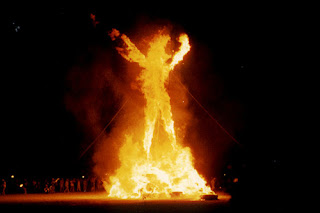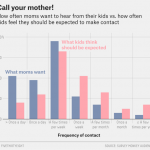This week, Jen of Conversion Diary (the gracious host of this blog carnival) wrote a piece for her new gig at the National Catholic Register called “The Catholic’s Guide to Atheists.” A recent convert to Catholicism, Jen tried to debunk some misconceptions many Catholics has about atheists. In this week’s Quick Takes, I’ll try to return the favor. Corrections and quibbles welcome! And if you’ve got a frequently made mistake that rankles, post it in the comments and I might add it as a bonus take.
Christian is not a Synonym for Evangelical
This is the most common problem I see around the atheist blogosphere. As an American, most of my political and scientific disputes are with evangelicals, so, all else equal, they’re the group I’m most prepared to scrap with. Some atheist blogs flatly declare that they’ve made deconverting evangelicals their focus, but plenty of other atheist blogs end up with a similar tone.
And all those folks run into trouble when they end up talking to non-evangelicals. In fact, pretty much all the quick takes below follow from this misconception.
Catholics are not Biblical Literalists
One of the entries on Jen’s list of mistakes was “They [Atheists] Find the Bible Persuasive” and I was tempted to steal the same heading for my list. Not that Catholics don’t believe the Bible to be true, but they usually don’t find it to be true in the same way that atheists are used to arguing about.
Plenty of atheists use genocides or strange laws from the Old Testament as an opening gambit when confronting Catholics. Trouble is, not all Catholics think that the Old Testament stories are entirely historical documents and most don’t believe that present day Christians are bound by all Talmudic laws. The sacrifice of Jesus Christ changed the rules.
Before you pull out your list of bizarre bible verses, ask the Catholics you’re talking to about how they interpret different parts of the bible. Ask them how they know which standard is appropriate for which text. There are plenty of interesting and convincing arguments to have about how to study the bible before you try any exegesis. And having that deeper discussion will probably lead you into one of the next two problems.
Edited to add: this section clears up a myth, but doesn’t do much to clarify the truth. I’d appreciate help from practicing Christians willing to discuss their approach to bible study. See this invitation for guest posts!
Not all Catholics were well catechized
If you’re used to debating/discussing religion with evangelicals who cram bible passages and spend their spring break trying to convert heathens like you — evangelicals who seem to have spent their whole lives learning to pick a fight with you, plenty of Catholics are going to disappoint you.
Catholic religious education is extremely variable, and plenty of parishes didn’t put a high premium of lay understanding before Vatican II. My dad was raised Catholic, and what he mainly remembers from the Latin masses he attended was “a lot of chanting.”
Some Catholics flat out do not know enough about their religion to answer your questions (even if you’ve steered clear of the bad ones in this list) or to debate you. Sorry you’re disappointed, but don’t try to pick a fight anyway. Believe me, other Catholics are way more saddened by this than you are. And don’t get cocky either until you see the next mistake.
Catholicism has had a lot of whip-smart apologists
Any argument about religion feels a little like an exercise in arrogance. The frustrating truth is that there have been plenty of extremely smart people on both sides who haven’t manages to convince each other. When you dredge up biblical contradictions or strange, current practices, you’re going to find the other side has a reasonable explanation.
Even if you’re sure Christianity is false, this shouldn’t be surprising. Do you really believe that for 2000 years no one else has found the flaw you’ve noticed, or if they have, they’ve all just stuck their metaphorical fingers in their ears while singing LA LA LA I CAN’T HEAR YOU! You’re not likely to find an easy gotcha.
In both the hypothetical world where Christianity is true and the one where it is false, you should expect there to be at least a reasonable-on-the-surface explanation for any obvious problem about a religion, so there’s actually no way to check which world you’re in on that basis.
Try listening to the explanation with an open mind. Try explaining that you would expect some level of explanation for any difficult belief, so the fact of a plausible sounding explanation doesn’t compel you to believe. Ask the person you’re talking to what s/he thinks should tip the balance.
(And spend a little time thinking about whether there’s any level of evidence you’d accept. Some atheists say there’s no evidence that could convince them. If you’re one of these, at least do your interlocutor the courtesy of telling them before they get too invested. And remember how frustrated we feel when a Christian says that to us).
Catholics aren’t excited that you’re going to Hell
(and they may not be sure that’s where you’re going)
You will rarely find a Catholic with the same grim delight in your fate that you’re liable to find in a lot of the blood and brimstone sects of the evangelical elect (and you won’t find it in all evangelical circles either).
Catholics don’t take the only-path-to-salvation-is-through-US position that is common among born-again evangelicals. The usual phrase is “We know where the Church is, but we aren’t sure where it isn’t.” That’s not to say they wouldn’t prefer you convert, because the chance that you’ve accepted Christ’s love in your own secret way is a little slim to stake a soul on, but you shouldn’t try to pick a fight about the justice of damnation. Plenty of Christians have a reasonable level of epistemological modesty about how exactly God is going to sort it all out.
(There’s an interesting range of opinions from different theological backgrounds on Alex Knapp’s post “The Problem of Devil“)
The Pope does not decide as many things as you’d think
Papal infallibility is weird, but mostly irrelevant to any disagreement that you’d ever have with a Catholic. Infallibility is invoked only rarely and is meant for only a certain range of theological problems. This explanation is solid and understandable, so take a skim, especially if you think the pope issues specific yes or no rulings on the suitability of every possible sex act within marriage. (Hint, he doesn’t)
Bishops’ mitres are not concealing their secret reptile fangs with which they plan to eat your children
You might think this one is unnecessary to include, but then you haven’t seen this anti-Catholic cartoon by Thomas Nast.
It looks pretty ridiculous now, but when you make some of the mistakes listed above, you look equally silly. Trying to start a debate about a religion you wrongly think you understand is as much of a nonstarter as waving around this cartoon. Let’s do better.
[Seven Quick Takes is a blog carnival run by Jen of Conversion Diary]


















